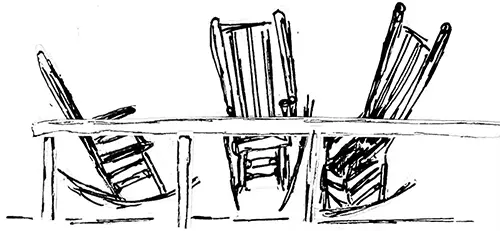Uncategorized 924
The Census Taker In a Church Pew, Part 5
Her heart is for those little ones, that they might come to know The One who became a child for our salvation and for the glory of God.
A Son’s Journey to His Father
Men often reflect on their relationship with their fathers during these coincidences of milestones; a similar thing often happens when a son reaches the age his father was when the…
Lincoln’s Grief
The healthy sorrow of our most melancholy president
98.6 Percent of Us Sense our Dead
We’re not crazy — and we’re not alone
Localism and Justice: A Review of The Story of Clyde Kennard
Kennard himself, though worrying about his legacy during his last illness, seemed remarkably free of bitterness. Concerning a prison guard who had abused him, he thought that the abuse had…
The Excellence (and Implications) of Escaping the Housing Trap
All of this only touches the surface of Escaping the Housing Trap’s arguments and only begins the many productive discussions that should—and hopefully will!—follow in its wake. Buy and read…
What’s In Your Garage?
No home but the Garden was there originally for man, once upon a very long time ago. No garage either was part of life before expulsion from Eden.
President Biden and the Lost Cause
In Lost Cause debates, President Biden should be wary of casting the first stone: his own history demonstrates the complicated relationship the country has with its deadliest war and the…
Public Enemy #1?: Smartphones and a Generation at Risk
Haidt’s book is a tour de force. I can give it no higher praise than to say I wish we could put this book in the hands of every parent,…
“I Wouldn’t Take Nothing for It”: An Appreciation of Love for the Land
“Heeding lessons from farmers who persist in place, we can embrace these virtues. Rather than give up or get out, we can dig in. Rather than go big, we can…
At Home with Dragons
The past is not completely lost to us, and the fascination with fantastic beasts remains.
Monuments to Human Stupidity? A Review of David Betz’s A Guarded Age
The film Patton contains many quotable quotes, some of which cannot be repeated on a family friendly website such as Front Porch (for example, what it might have been like…
Why We Don’t Believe in Free Will
A quarter of a century ago, Wendell Berry wrote, “the next great division of the world will be between people who wish to live as creatures and people who wish…
Abandoned Altars
Here, in this shed’s unremarkable pool of silence, I am reminded of other places where silence stretched like an ocean. I happened upon one of those waning shores the previous…
The Timeless Way of Building: A Review
Why is it that we can all say that this building works, that this room is just right, that this town is good and pleasing? Why is it that we…
The Census Taker In a Church Pew, Part 4
Yet our little sister does not play the victim. She presses on, a sufferer who labors as best she can while shadows and thorns press in against her. And she…
Southern Hospitality in the New Machine Age
It’s not perhaps that the world doesn’t need change, but that as anti-Machine author Paul Kingsnorth put it in these pages, “the first work is changing yourself.” We have to…
Two Leftists Walk Into a Pandemic . . .
Not only did the worst consequences of lockdowns occur in the Global South, but lockdowns were pushed on the South from the North, through well-known strongarm tactics of neocolonialism that…
Federalism Frees Us to Flourish
Although it may seem counterintuitive, freedom is actually enhanced, not curtailed, when states have the right to experiment, subject to important federal constitutional limitations, with social and economic polices till…
Small Plastic Gods: On the Tabletop Renaissance
Tabletop games put something in our twitchy, swipe-hungry fingers other than a digital device—a hand of cards, a pair of dice, a plastic Zeus. And since others have put down…
New Beginnings: A Conversation with David Heddendorf about his Novel, The Terra Cotta Camel
David Heddendorf’s novel, The Terra Cotta Camel, is, as the subtitle accurately puts it, about “hope, new beginnings, and Des Moines.” It is about the small, the local, and the…
Socialism, Localism, and the Future of Industrial Agriculture
If I’m honest, I am skeptical that the localist approach I advocate will bring about a quasi-utopian future of widespread flourishing, at least within my lifetime. But at least localism…
The Census Taker in the Pew, Part 3
He does not conflate attendance with salvation or sanctification. But empty pews can neither be saved nor sanctified. They never serve in the nursery or children’s services. They never teach…
For the Love of Books
Out-of-sight, out-of-mind is the quintessential modern American problem-solving strategy, and it sure does have a lot going for it, when it comes to dealing with our problem of stuff—that other…













